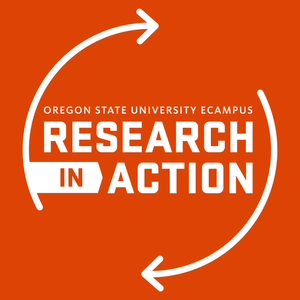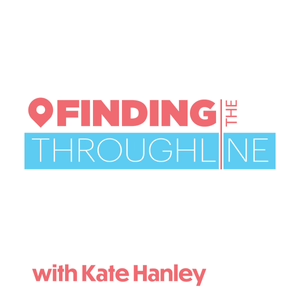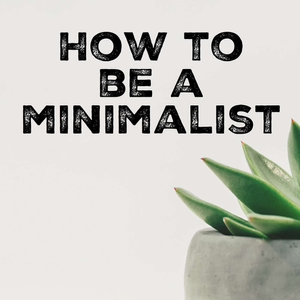
Ep 140: Dr. James M. Lang on Editing a Book Series
01/07/19 • 36 min
On this episode, Katie is joined by Dr. James M. Lang, a Professor of English and the Director of the D’Amour Center for Teaching Excellence at Assumption College in Worcester, MA. He is the author of five books, the most recent of which are Small Teaching: Everyday Lessons from the Science of Learning (Jossey-Bass, 2016), Cheating Lessons: Learning from Academic Dishonesty (Harvard University Press, 2013), and On Course: A Week-by-Week Guide to Your First Semester of College Teaching (Harvard UP, 2008). Lang writes a monthly column on teaching and learning for The Chronicle of Higher Education; his work has been appearing in the Chronicle since 1999. His book reviews and public scholarship on higher education have appeared in a wide variety of newspapers and magazines, including the Boston Globe, Chicago Tribune, and Time. He edits a new series of books on teaching and learning in higher education for West Virginia University Press. He has conducted workshops on teaching for faculty at more than a hundred colleges or universities in the US and abroad, and consulted for the United Nations on the development of teaching materials for college faculty. In September of 2016 he received a Fulbright Specialist grant to work with three universities in Colombia on the creation of a MOOC on teaching and learning in STEM education. He has a BA in English and Philosophy from the University of Notre Dame, an MA in English from St. Louis University, and a Ph.D. in English from Northwestern University.
Segment 1: Editing a Book Series [00:00-14:59]
In this first segment, Jim shares about his experience editing a book series.
In this segment, the following resources are mentioned:
- Lang, J. M. (2016). Small teaching: Everyday lessons from the science of learning. San Francisco, CA:Jossey-Bass.
- Lang, J. M. (2013). Cheating lessons: Learning from academic dishonesty. Cambridge, MA: Harvard University Press
- Lang, J. M. (2008). On course: A week-by-week guide to your first semester of college teaching. Cambridge, MA: Harvard University Press.
- POD Network (conferences)
- RIA # 9: Dr. Kevin Gannon on Balancing Research, Teaching & Service
- RIA # 124: Dr. Sarah Rose Cavanagh on Emotions and Teaching
- Cavanagh, S. R. (2016). The spark of learning: Energizing the college classroom with the science of emotion. Morgantown, WV: West Virginia University Press.
Segment 2: Choosing Which Books to Write Next [15:00-27:16]
In segment two, Jim discusses how he chooses which book to write next.
In this segment, the following resources are mentioned:
- Blog post on Dr. Jame's Lang's forthcoming book, Teaching Distracted Minds
- Schuman, R. (2018, November 4). The worst writing advice in the world. The Chronicle of Higher Education. Retrieved from https://www.chronicle.com/
- Lang, J. M. (2016). Small teaching: Everyday lessons from the science of learning. San Francisco, CA:Jossey-Bass.
- Cavanagh, S. R. (2016). The spark of learning: Energizing the college classroom with the science of emotion. Morgantown, WV: West Virginia University Press.
Segment 3: Writing as a Teacher [27:17-36:08]
In segment three, Jim shares about his practical experience as a teacher impacts his writing.
To share feedback about this podcast episode, ask questions that could be featured in a future episode, or to share research-related resources, contact the “Research in Action” podcast:
Twitter: @RIA_podcast or #
On this episode, Katie is joined by Dr. James M. Lang, a Professor of English and the Director of the D’Amour Center for Teaching Excellence at Assumption College in Worcester, MA. He is the author of five books, the most recent of which are Small Teaching: Everyday Lessons from the Science of Learning (Jossey-Bass, 2016), Cheating Lessons: Learning from Academic Dishonesty (Harvard University Press, 2013), and On Course: A Week-by-Week Guide to Your First Semester of College Teaching (Harvard UP, 2008). Lang writes a monthly column on teaching and learning for The Chronicle of Higher Education; his work has been appearing in the Chronicle since 1999. His book reviews and public scholarship on higher education have appeared in a wide variety of newspapers and magazines, including the Boston Globe, Chicago Tribune, and Time. He edits a new series of books on teaching and learning in higher education for West Virginia University Press. He has conducted workshops on teaching for faculty at more than a hundred colleges or universities in the US and abroad, and consulted for the United Nations on the development of teaching materials for college faculty. In September of 2016 he received a Fulbright Specialist grant to work with three universities in Colombia on the creation of a MOOC on teaching and learning in STEM education. He has a BA in English and Philosophy from the University of Notre Dame, an MA in English from St. Louis University, and a Ph.D. in English from Northwestern University.
Segment 1: Editing a Book Series [00:00-14:59]
In this first segment, Jim shares about his experience editing a book series.
In this segment, the following resources are mentioned:
- Lang, J. M. (2016). Small teaching: Everyday lessons from the science of learning. San Francisco, CA:Jossey-Bass.
- Lang, J. M. (2013). Cheating lessons: Learning from academic dishonesty. Cambridge, MA: Harvard University Press
- Lang, J. M. (2008). On course: A week-by-week guide to your first semester of college teaching. Cambridge, MA: Harvard University Press.
- POD Network (conferences)
- RIA # 9: Dr. Kevin Gannon on Balancing Research, Teaching & Service
- RIA # 124: Dr. Sarah Rose Cavanagh on Emotions and Teaching
- Cavanagh, S. R. (2016). The spark of learning: Energizing the college classroom with the science of emotion. Morgantown, WV: West Virginia University Press.
Segment 2: Choosing Which Books to Write Next [15:00-27:16]
In segment two, Jim discusses how he chooses which book to write next.
In this segment, the following resources are mentioned:
- Blog post on Dr. Jame's Lang's forthcoming book, Teaching Distracted Minds
- Schuman, R. (2018, November 4). The worst writing advice in the world. The Chronicle of Higher Education. Retrieved from https://www.chronicle.com/
- Lang, J. M. (2016). Small teaching: Everyday lessons from the science of learning. San Francisco, CA:Jossey-Bass.
- Cavanagh, S. R. (2016). The spark of learning: Energizing the college classroom with the science of emotion. Morgantown, WV: West Virginia University Press.
Segment 3: Writing as a Teacher [27:17-36:08]
In segment three, Jim shares about his practical experience as a teacher impacts his writing.
To share feedback about this podcast episode, ask questions that could be featured in a future episode, or to share research-related resources, contact the “Research in Action” podcast:
Twitter: @RIA_podcast or #
Previous Episode

January 2019 Preview Clips
Take a listen to our January 2019 preview clips!
To share feedback about this podcast episode, ask questions that could be featured in a future episode, or to share research-related resources, contact the “Research in Action” podcast:
Twitter: @RIA_podcast or #RIA_podcast Email: [email protected] Voicemail: 541-737-1111
If you listen to the podcast via iTunes, please consider leaving us a review.
The views expressed by guests on the Research in Action podcast do not necessarily represent the views of Oregon State University Ecampus or Oregon State University.
Next Episode

Ep 141: Dr. Gail Crimmins on Arts-informed Research
On this episode, Katie is joined by Dr. Gail Crimmins, who initially trained as a performer and worked as a performer, director and casting director in theatre, television and film in the UK for almost 10 years. She subsequently taught Drama and Performance at universities and conservatoires before moving to Australia in 2008. Gail undertook her PhD study (an arts-informed narrative inquiry into the lived experience of women casual academics) alongside part-time teaching and fully committed mothering. She currently works as a Lecturer of Communication, coordinates a series of Communication Programs, and is the First Year Experience Lead for the School of Communication and Creative Industries, at the University of the Sunshine Coast in Queensland, Australia. She undertakes arts-informed, narrative and auto-ethnographic research, predominantly though not exclusively, exploring the lived experience of women academics. Gail is a feminist researcher who seeks to illuminate the impacts of patriarchal structures on women’s lives and explore ways for women’s stories and voices to be heard.
Segment 1: Arts-informed Research [00:00-16:38]
In this first segment, Gail shares about how she got started with arts-informed research.
In this segment, the following resources are mentioned:
- Cahnmann, M. (2006). Reading, living, and writing bilingual poetry as scholARTistry in the language arts classroom. Language Arts, 83(4), 342.
- Cole, A. L., & Knowles, G. J. (2008). Arts-informed research. In G. J. Knowles & A. L. Cole (Eds.) Handbook of the Arts in Qualitative Research. Perspectives methodologies, examples and issues (pp. 55-70). Los Angeles: Sage Publications.
- Nielsen, L. (2000). Academy performances, academy rewards. Teacher Education Quarterly, 27(2), 163-170.
- Nielsen, L. (2002). Learning from the liminal: Fiction as knowledge. Alberta Journal of Education Research 48(3), 206-214.
- Sikes, P. & Gale, K. (2006). Narrative Approaches to Education Research. Plymouth: University of Plymouth.
Segment 2: Examples of Arts-informed Research [16:39-37:37]
In segment two, Gail offers examples of her own work with arts-informed research.
In this segment, the following resources are mentioned:
- Books:
- Cole, A. L., & Knowles, G. J. (2008). Arts-informed research. In G. J. Knowles & A. L. Cole (Eds.) Handbook of the Arts in Qualitative Research. Perspectives methodologies, examples and issues (pp. 55-70). Los Angeles: Sage Publications.
- Gee, J. P. (1990). Social linguistics and literacies (1st ed.). London, UK: Falmer Press.
- Gee, J. P. (2005). An introduction to discourse analysis theory and method (2nd ed.). London: Routledge.
- Articles:
- Ewing, R., & Hughes, J. (2008). Arts-informed inquiry in teacher education: contesting the myths. European Education Research Journal, 7(4), 512–522. Retrieved from http://dx.doi.org/10.2304/eerj.2008.7.4.512
- Gee, J. P. (1985). The narrativization of experience in the oral style. Journal of Education, 167(1): 9-35.
- Gee, J. P. (1991). A linguistic approach to narrative. Journal of Narrative and Life History 1(1):15-39.
- MacLure, M. (2013). The wonder of data. Cultural Studies ↔ Critical Methodologies, 13 (4), 228–232.
- Ringrose, J. & Renold, E. (2014). 'F**K Rape!’: Exploring affective intensities in a feminist research assemblage. Qualitative Inquiry 20 ...
If you like this episode you’ll love
Episode Comments
Generate a badge
Get a badge for your website that links back to this episode
<a href="https://goodpods.com/podcasts/research-in-action-a-podcast-for-faculty-and-higher-education-professi-990/ep-140-dr-james-m-lang-on-editing-a-book-series-84087"> <img src="https://storage.googleapis.com/goodpods-images-bucket/badges/generic-badge-1.svg" alt="listen to ep 140: dr. james m. lang on editing a book series on goodpods" style="width: 225px" /> </a>
Copy




